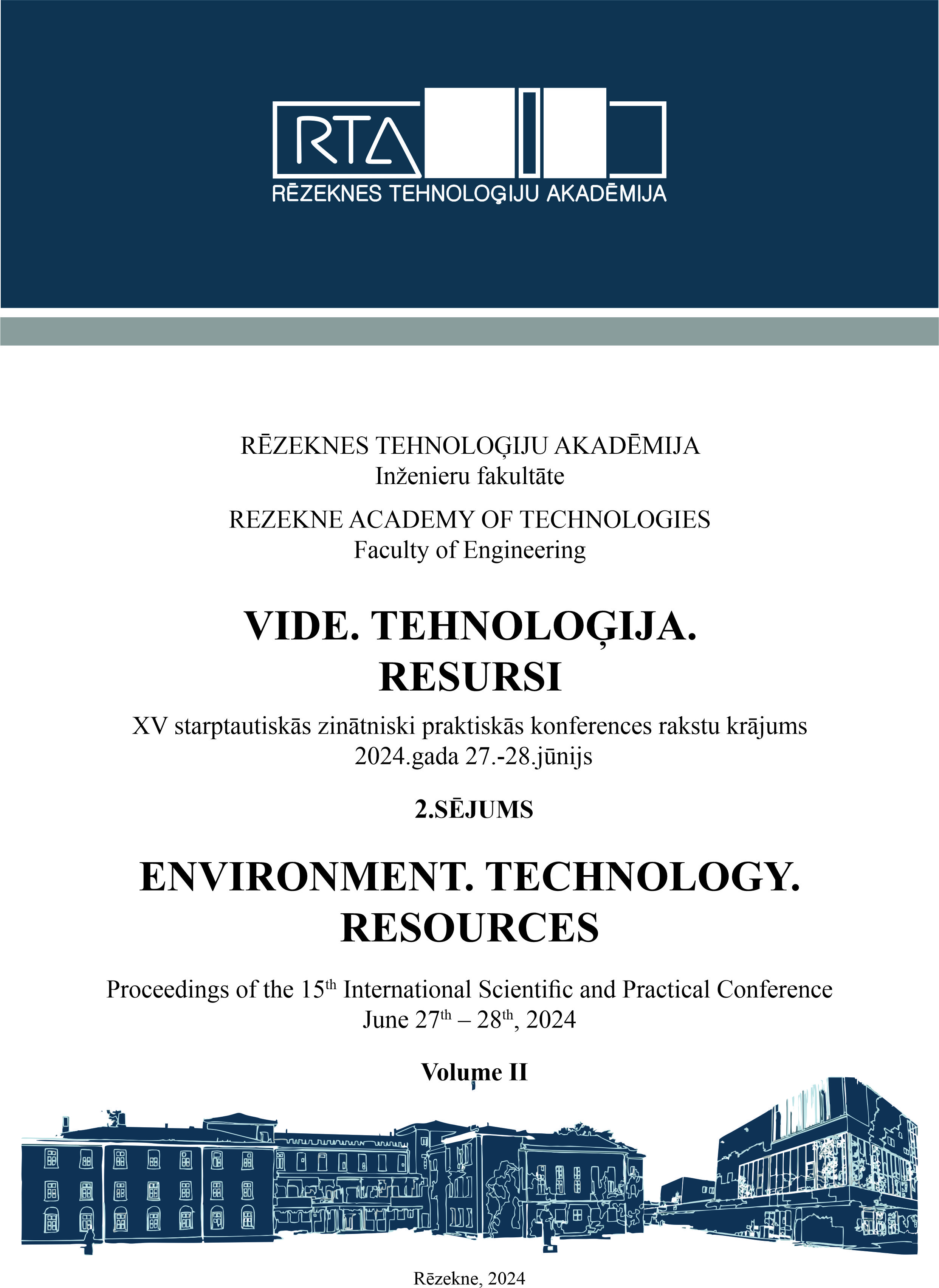ENHANCING STUDENTS' LISTENING COMPREHENSION SKILLS THROUGH AI-BASED PODCAST ACTIVITIES: A STUDY IN SELF-STUDY MODE
DOI:
https://doi.org/10.17770/etr2024vol2.8085Keywords:
AI tools, ESP skills, Ted podcasts, YT class platform; listening comprehension skills; Fisher’s criterionAbstract
The increased number of learning hours for students’ self-study in university ESP courses, on the one hand, and the high requirements for future engineers in the world labour market, on the other hand, confirm the necessity to foster students’ ESP skills in a self-study mode. Thanks to the rapid development of educational technologies, studying any discipline can be made interesting and effective. Our study suggests that utilizing AI tools in engineering podcast activities can improve engineering students’ listening comprehension skills in self-study mode. The post-study test designed with the help of the YT Class platform which generates assessment tests for video content, is compared across the control and experimental groups (52 third-year engineering students). The participants of both groups had experience using Ted podcasts in ESP learning and previous research proved the efficacy of implementing such activities in ESP classrooms with the first-year students of the Engineering and Technology Department. The final test based on the results of the processed podcasts was evaluated at 100 points, where the high score level was set at 60 points. In the experimental group, 15 students scored more than 60 points, in the control group, 8 students received more than 60 points. To confirm or refute the hypothesis that the proportion of students who received more than 60 points in the experimental group is higher than in the control group, the Fisher criterion was used. The progress of the students in the experimental group was statistically proven. AI-based podcast listening activities of engineering students outside the classroom prove to be a significant tool for improving students’ listening comprehension skills and inspiring curiosity and motivation to further development.
References
V. González-Calatayud, P. Prendes-Espinosa, and R. Roig-Vila, “Artificial Intelligence for Student Assessment: A Systematic Review,” Applied Sciences, vol. 11, no. 12, 12, June 2021. [Online serial]. Available: file:///C:/Users/ASUS/Downloads/applsci-11-05467-v2.pdf. [Accessed Dec. 2, 2023].
D. Kovačević, "Use of ChatGPT in ESP Teaching Process," In 22nd International Symposium INFOTEH-JAHORINA (INFOTEH), East Sarajevo, Bosnia and Herzegovina, 2023, pp. 1-5, https://doi.org/10.1109/INFOTEH57020.2023.10094133
Marzuki, U. Widiati, D. Rusdin, Darwin and I. Indrawati, “The impact of AI writing tools on the content and organization of students’ writing: EFL teachers’ perspective,” Cogent Education, vol. 10, no. 2, 20 July 2023. [Online serial]. Available: https://www.tandfonline.com/doi/epdf/10.1080/2331186X.2023.2236469?needAccess=true. [Accessed Dec. 24, 2023].
T. Özgül, “The Influence of AI Writing Tools on the Content and Organization of Students’ Writing: A Focus on EFL Instructors' Perceptions,” Journal of current debates in social sciences, vol. 2, pp. 83-93. 2023. https://doi.org/10.29228/cudes.71701
J. M. Gayed, M. K. J. Carlon, A. M. Oriola and J. S. Cross, “Exploring an AI-based writing Assistant’s impact on English language learners,” Computers and Education: Artificial Intelligence, vol. 3, 25 February 2022. [Online serial]. Available: https://www.sciencedirect.com/science/article/pii/S2666920X22000108?via%3Dihub. https://doi.org/10.1016/j.caeai.2022.100055. [Accessed Oct. 04, 2023].
L. Ricky and B. Moorhouse, Using Digital Portfolios to Develop Students’ Writing: A Practical Guide for Language Teachers, 1st ed. London: Routledge, 2022. [E-book] Available: T&F eBooks.
F. Qasem, M. Ghaleb, H.S. Mahdi, A. Al Khateeb, and H. Al Fadda, "Dialog chatbot as an interactive online tool in enhancing ESP vocabulary learning,” Saudi Journal of Language Studies, vol. 3, no. 2, pp. 76-86, 2023. https://doi.org/10.1108/SJLS-10-2022-0072
F. Ningsih, “Classtime.com as an AI-Based Testing Platform: Analysing ESP Students’ Performances and Feedback,” JOLLT Journal of Languages and Language Teaching, vol. 11, no. 3, pp. 390-404, 2023. https://doi.org/10.33394/jollt.v%vi%i.8286
M. Enesi, F. Vrapi, and A. Trifoni, “Challenges of Teaching and Learning English Language for ESP Courses,” Journal of Educational and Social Research, vol. 11, no. 4, 7 August 2021. [Online serial]. Available: https://www.richtmann.org/journal/index.php/jesr/article/view/12561. [Accessed Nov. 09, 2023].
M. Coanca, "The role of artificial intelligence in teaching English for specific purposes,” The Free Library, 14 February 2024. [Online serial]. Available: https://www.thefreelibrary.com/THE ROLE OF ARTIFICIAL INTELLIGENCE IN TEACHING ENGLISH FOR SPECIFIC...-a0770324351. [Accessed Nov. 08, 2023].
M.P. Prendes Espinosa and V. González-Calatayud, “Interactive environments for involvement and motivation for learning,“ in Video Games for Teachers: From Research to Action, Payá, A., Mengual-Ándres, S., Eds. Mcragw Hill: Madrid, Spain, 2019, pp. 17–38.
M. Burkle and C. Cobo, “Redefining Knowledge in the Digital Age,” J. New Approaches Educ. Res., vol. 7, pp. 79–80, 2018.
O. Chaikovska, L. Zbaravska and T. Bilyk. "Podcasts in teaching EFL for students majoring in engineering", in Proc. of 18th International Scientific Conference “Engineering for Rural Development, 2019, vol. 18, pp. 1915–1920. https://doi.org/10.22616/ERDev2019.18.N344
I. Humeniuk, O. Kuntso, N. Popel and Y. Voloshchuk, Y. (2021). Mastering listening comprehension at ESP classes using Ted Talks,” Advanced Education, vol. 8, no. 17, pp. 27-34, 2021. https://doi.org/10.20535/2410-8286.226733
Downloads
Published
Issue
Section
License
Copyright (c) 2024 Olha Chaikovska, Olha Stoliarenko, Nataliia Hlushkovetska, Iryna Semenyshena

This work is licensed under a Creative Commons Attribution 4.0 International License.



